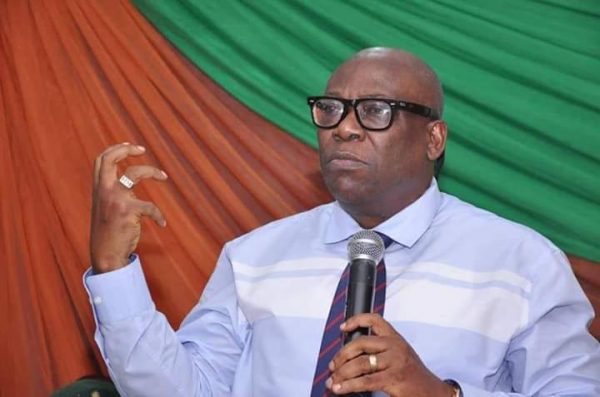The federal government has begun integrating unspent capital expenditures from the 2024 fiscal year into its 2025 budget, a move officials say is aimed at improving fiscal efficiency and driving infrastructure-led economic expansion.
The policy, announced Wednesday by the ministry of finance, uses the Government Integrated Financial Management Information System (GIFMIS) to roll over unused capital funds. The effort, according to Wale Edun, minister of finance and coordinating minister of the economy is part of a broader reform to streamline budget execution and improve public investment impact.
At a high-level session in Abuja, Edun convened senior government officials to align on the strategy, which mandates that all Ministries, Departments, and Agencies (MDAs) secure financial warrants before entering into new contractual commitments.
The change is designed to prevent the historical accumulation of unpaid obligations and ensure that capital spending is matched by available cash.
READ ALSO:
‘Insensitive;’ CAC Fires Back At Pastor Fatoyinbo Over Comment On Ayo Babalola
Obasanjo Library Demands N3.5bn Compensation,Public Apology Over EFCC’s Raid
Govt Backs Off, Appoints K1 Ambassador, Frees Comfort of Criminal Charges
Bandits Abduct 20 Women In Fresh Zamfara Attack
“Nigeria’s future growth depends on effective, honest, and targeted spending,” Edun said. “We must ensure that public resources work harder for our people and our economy.”
The finance ministry emphasized that the reforms are central to President Bola Tinubu’s economic agenda, which targets a 7% annual GDP growth rate. That level of expansion, officials say, is necessary to meaningfully reduce poverty in Africa’s largest economy.
The decision to repurpose unspent capital funds marks a departure from past practice, where such funds would often be lost to the budget cycle. Instead, the use of the GIFMIS platform allows for real-time tracking and deployment of public funds, offering more flexibility and transparency in the fiscal process.
Analysts believe that the move could help improve budget credibility—a long-standing challenge in Nigeria’s public finance management—and boost investor sentiment at a time when the country seeks increased foreign direct investment.
“This strategic move is aimed at unlocking private sector confidence, driving infrastructure delivery, and sustaining economic growth and development,” the ministry said in an official statement.
Nigeria, still recovering from currency volatility, inflationary pressure, and a fluctuating oil market, has been under increasing pressure to boost non-oil revenues and improve the credibility of its public spending.
For the private sector, the integration of unspent capital funds is expected to result in faster payment cycles and a more stable fiscal environment—key ingredients for attracting investment into critical sectors like energy, logistics, and housing.
“Transparent and efficient budget execution is critical to President Bola Ahmed Tinubu’s growth agenda,” Edun said during the meeting. By ensuring that every naira is tied to performance and measurable outcomes, the reforms aim to limit waste and encourage disciplined budgeting across federal agencies.
The ministry stressed that these measures reinforce the government’s commitment to fiscal responsibility and inclusive development, while laying the groundwork for long-term economic resilience.
FG moves to clear N4trn GenCos’ debt as Wale Edun submits proposal to FEC
In another development, Wale Edun, the minister of finance and coordinating minister of the economy, says he presented a proposal to the federal executive council (FEC) to enable the federal government to clear the N4 trillion debt owed to power generation companies.
Edun spoke on Tuesday while briefing state house correspondents after the FEC meeting, presided over by President Bola Tinubu.
Edun said during the council’s meeting, he presented a memo on refinancing outstanding obligations in the electricity industry totalling N4 trillion.
“I presented a memo on the all-important refinancing of the electricity sector’s outstanding obligations totalling N4 trillion,” the minister said.
“Though the financing plan was not fully approved immediately, we have moved into implementation, led by the Debt Management Office and other experts.”
The minister said the first phase of the process should be completed within three to four weeks, which will mark significant progress in resolving the debt.
Refinancing is when a loan is replaced with another one. This means paying off a debt with another debt obligation.
In April 2025, power generation companies (GenCos) warned that the N4 trillion unpaid debt owed by the federal government and stakeholders for electricity generated threatens their operations.
A breakdown of the debt includes N2 trillion for 2024 and N1.9 trillion in legacy debts.
Earlier in May, Adebayo Adelabu, minister of power, said the federal government may borrow to settle part of the N4 trillion debt owed to power generation companies (GenCos).
FG Seeks $125m Islamic Bank Loan For Road Projects In Abia
Further speaking, Edun said the federal government is seeking $125 million from the Islamic Development Bank (IsDB) to fund infrastructure projects in Abia state.
He said the loan will finance the construction of about 35 kilometres of roads in Umuahia and 126 kilometres in Aba.
“In addition to our other priorities, I presented a memo on infrastructure support from the Islamic Development Bank totalling $125 million for Abia State,” the minister said.
Edun said this financing will enhance critical road networks connecting Umuahia and Aba, boosting transport efficiency and economic activities in the region.





